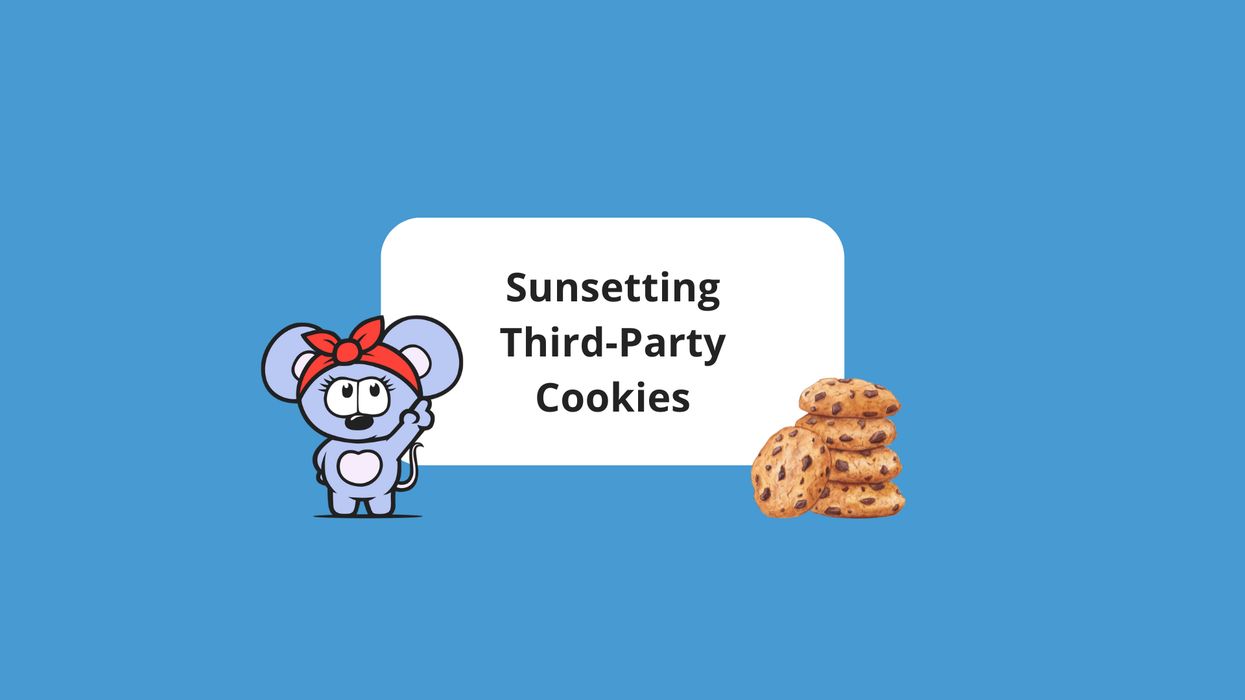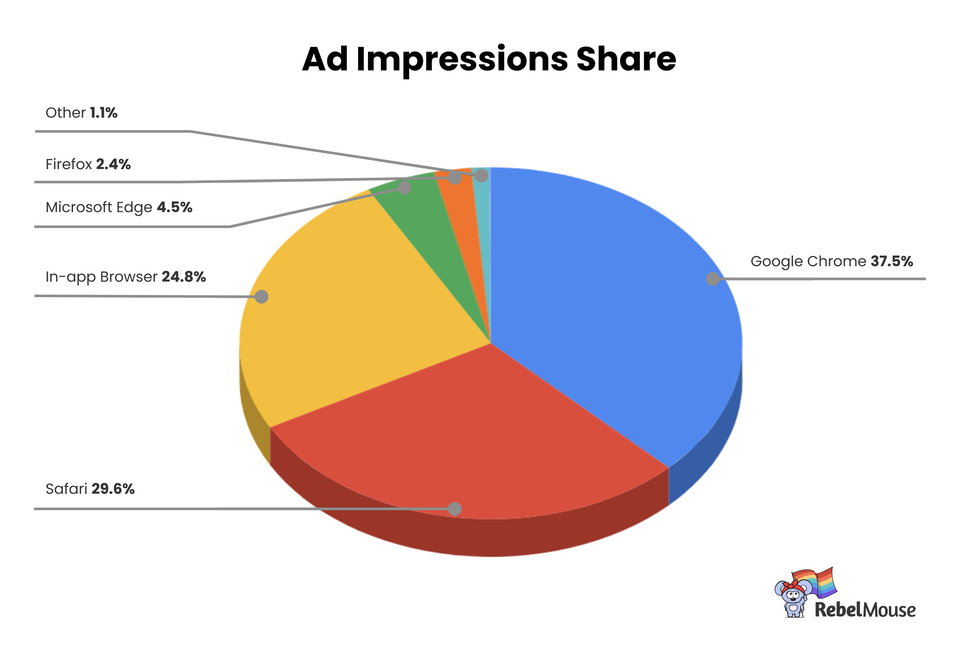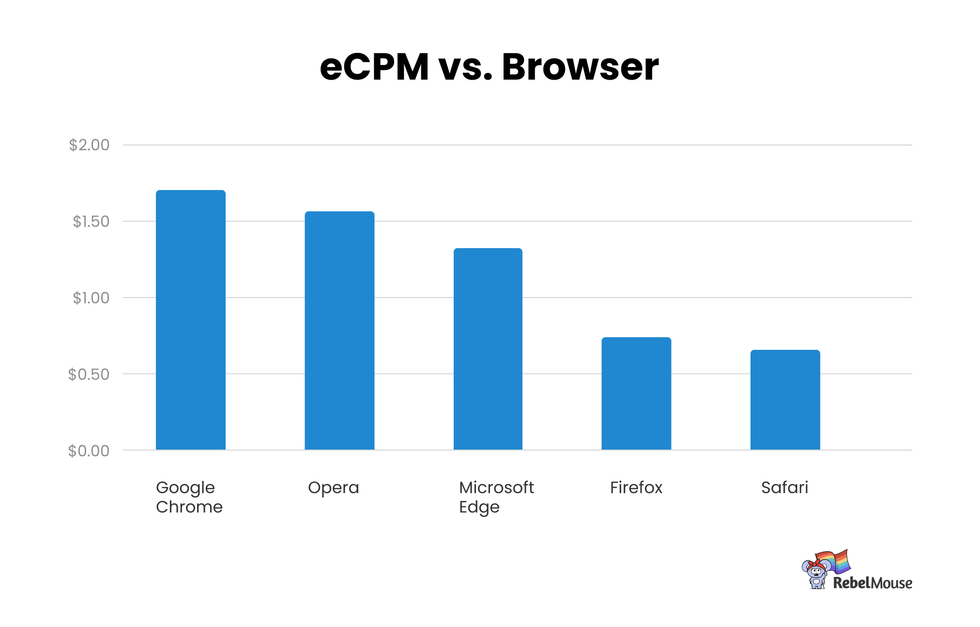The upcoming demise of third-party cookies is on track to turn the digital advertising world upside down, and some publishers are still not ready for how it could impact their bottom line.
Third-party cookies, which are small text files designed to make it easy for sites to identify visitors and their browsing habits, have been on the chopping block for years. Many web browsers have severely limited or completely cut off the power of third-party cookies already. As of January 4, 2024, Google Chrome has restricted third-party cookies for 1% of users, and plans to increase third-party cookie restrictions to 100% of users beginning in Q3 2024.
As third-party cookies become obsolete, traditional targeting methods will no longer suffice. That’s why publishers are scrambling to establish a first-party data strategy. Click here to get caught up on the definition of first-party data and why it’s critical to your revenue roadmap.
Recently, our team of growth strategists researched browser analytics to uncover just how big this impact will be on advertisers. One of the more striking findings from our analysis was the disparity in ad performance between different browsers. For example, Safari has already disabled third-party cookies and captures approximately 30% of U.S. web traffic. Despite its substantial user base, the average effective cost per 1,000 ad impressions (eCPM) is $0.62. By contrast, Chrome, with its larger share of U.S. web traffic at approximately 38%, has a substantially higher average eCPM at $1.67.
What’s eCPM? eCPM stands for “effective cost per mille.” (Mille means one-thousand in Latin). eCPM helps advertisers understand how much they're paying for every one thousand impressions of their ad. This is a valuable metric for understanding the effectiveness and profitability of a campaign. A higher eCPM indicates that you're earning more revenue for every one thousand impressions of your ad.
Let’s take a look at the browser data we analyzed. Here’s where the most popular web browsers stand on the use of third-party cookies:
Browser | Use of Third-Party Cookies |
Google Chrome | Severely limits third-party cookies, with total restrictions coming this year. |
Opera | Allows third-party cookies. |
Microsoft Edge | Allows third-party cookies, and is expected to make similar restrictions like Google. |
Firefox | Blocks third-party cookies from known trackers by default. |
Safari | Blocks third-party cookies by default. |
Here’s a chart to better visualize the share of ad impressions across Safari, Chrome, and other browsers:
And here’s a look at the average eCPM for those same browsers:
Remember, Safari has completely phased out third-party cookies. So when Chrome finally does the same, you can expect to see a similar decrease in average eCPM. The dramatic difference in average eCPM between Safari and Chrome is a good illustration of why it’s imperative for publishers to be ready for this major shift away from cookies and how it could seriously impact revenue streams.
At RebelMouse, we are developing a solution that mitigates this decline by leveraging first-party data and the way it’s shared with advertisers.
Additionally, since 2022, RebelMouse has invested heavily in research and development around AI technologies. Leveraging OpenAI’s ChatGPT and Google’s Vertex AI, we have become expert AI integrators. The breakthroughs in this space, combined with our approach to first-party data, have been essential to the groundbreaking results we’ve achieved. Thanks to our innovative AI integrations, RebelMouse seamlessly aligns editorial content with programmatic buyers' IAB taxonomies. Click here to learn more.
Win Back Revenue With First-Party Data
RebelMouse’s all-encompassing AdOps services leverage AI and first-party data to create more personalized, targeted, and effective advertising experiences for your users without the need for third-party cookies.
Looking to get ahead of the ad game? Let’s connect to explore how we can work together.



